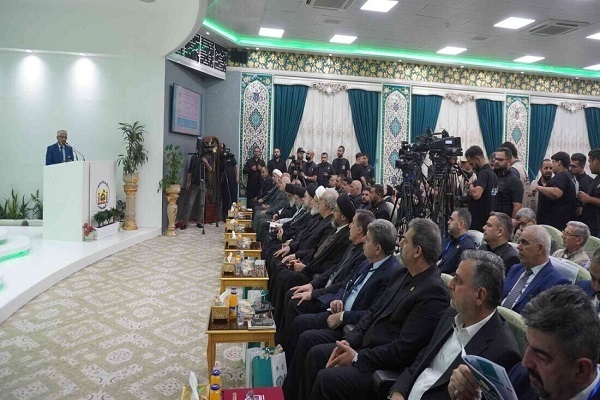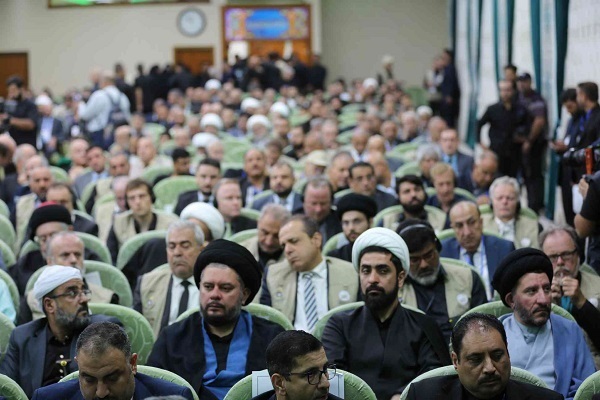8th Int'l Arbaeen Pilgrimage Conference Held in Karbala

Organized by the Karbala Center for Studies and Research, the conference was attended by religious and official figures, scholars, various community members, and researchers from around the world, according to the Holy Shrine of Imam Hussein's (AS) information center.
Abdulamir Aziz Al-Quraishi, head of the Karbala Center for Studies, addressed the various aspects of the Ashura event during the conference held in the Khatam Al-Anbiya Hall at the Holy Shrine of Imam Hussein (AS).
He stated that the Karbala movement was not only a revolution against injustice but also a "profound educational movement" with significant educational, moral, and ethical values established by Imam Hussein (AS) through his sacrifices and steadfastness.
Al-Quraishi described the uprising of Imam Hussein (AS) as "unparalleled," explaining that it created a new history among Muslims. "For the first time, an uprising was initiated not for power or wealth but for dignity, honor, and the protection of society."
Read More:
Imam Hussein's (AS) movement embodies the highest human values, surpassing personal interests and despotic motives, and was established to defend human principles and justice, he said, adding that the movement remains a prominent example of the struggle for human dignity.
Hassan Rashid Al-Abayji, Secretary-General of the Holy Shrine of Imam Hussein (AS), highlighted that the issue of Palestine is an extension of Imam Hussein's (AS) uprising, stressing the importance of standing for justice and supporting the oppressed.
He added that Imam Hussein's (AS) movement became eternal because it stood against falsehood and refused humiliation and surrender.
"The blood triumphed over the sword," he said, adding, "The Imam's movement ensured the survival of Islam."
Read More:
He emphasized that the Arbaeen pilgrimage reflects some of the sorrowful images of oppression and injustice faced by the family of Prophet Muhammad (PBUH).
The eighth International Arbaeen Pilgrimage Conference, themed "Arbaeen Pilgrimage: Towards Global Approaches to Humanity and Civilization," concluded Thursday, August 29.

The two-day event featured presentations and speeches by scholars from 36 countries, including Iraq, India, Malaysia, Italy, the Netherlands, Kosovo, Ireland, Bahrain, Tunisia, Germany, Belgium, Japan, Lebanon, and Iran.
A total of 148 research papers were submitted to the conference secretariat, of which 100 were accepted after scientific review.
4234126



